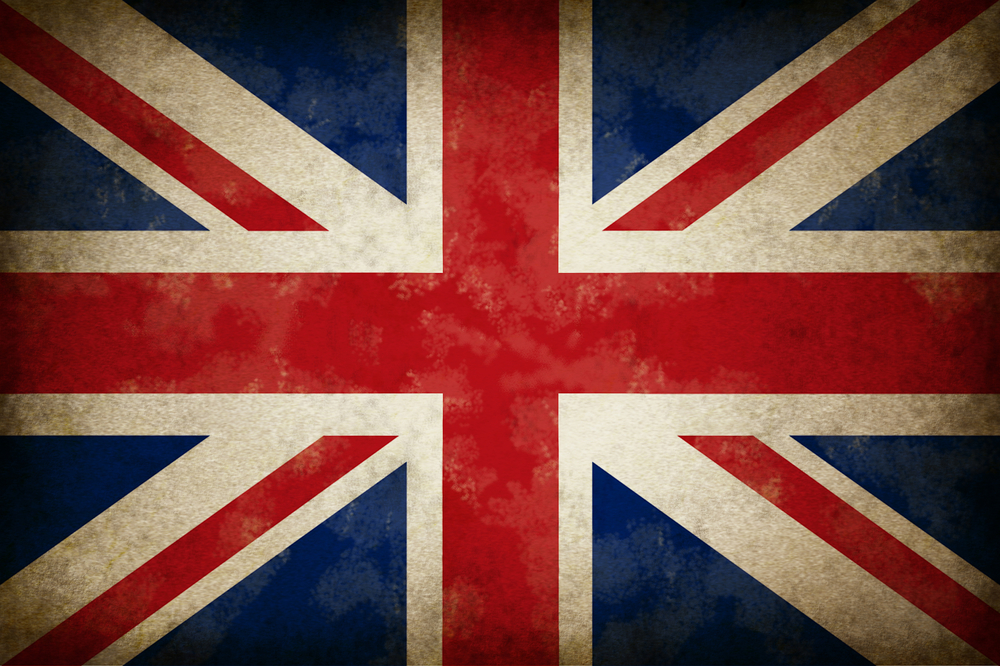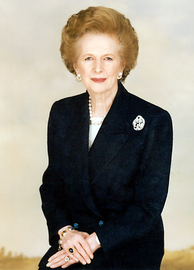

On May 4th 1979, Margaret Thatcher took office as the prime minister of the United Kingdom. When I was younger and more libertarian than I am now, I used to think that Thatcher would be remembered one day as a moderate statist, because soon enough we would see far more sweeping reforms than hers, wider and wider privatisations, free-market liberalism if not an-cap eventually triumphing. Was I wrong!
Love her or hate her, Thatcher is still now – and will be for a while – remembered as the most committed free marketer among Westerner leaders. That is certainly due to what she did. I would say that Thatcher’s main and longer lasting legacy is privatisations: from “Right to Buy”, that is: allowing people to buy the government-owned “council” houses that they lived in, to British Telecom, British Gas, British Airways and the then-nationalised automobile sector, she privatised big and bold. That choice benefited the economy in a number of ways: allowed for lower prices and eventually more consumer choice, brought a substantial chunk of the business sector back into the capitalist fold, enabling the emergence of better governance practices for those very industries, fertilizing the financial sector. But it was also a most visible way to show people that the state could be rolled back. As Lord Tebbit puts it in PBS documentary “Commanding Heights”, “One of Margaret Thatcher’s extraordinary achievements was that she changed the whole perception of the way our economy is run”.
Arthur Seldon, though less of a Thatcherite than his pal and IEA comrade Ralph Harris, put it in an admirably succinct way (“A Conversation with Harris and Seldon“):
She did more to deprive the government of its powers. She did more than any other head of government to deprive it of powers that they exercised in all the post-war years until her first year. She did more to de-socialise, de-nationalise. Hers is the only government that did more than merely moderately alter the laws that governed unions’ influence or power. She actually had a public quarrel that did more I think than almost anything else: it showed that the government was prepared to live up to its promises to deprive the miners of the excesses with which they had laid down the laws about their rights.
That Thatcher did all that doesn’t mean she was an ideologue or a classical liberal theorist of sorts. The two magnificent first volumes of Charles Moore’s biography of Mrs. Thatcher made clear, I think, what a canny politician she was, and how astute she was in the art of compromise that politics, at the end of the day, always is.
In a way, as Ken Minogue pointed out (and many others too), “much of the significance of Mrs Thatcher’s 1979 triumph lay in its timing”. The Seventies were so bad they created room for a radical change in politics which simply wasn’t there five or ten years before. It is often remarked that Thatcher wasn’t Thatcher when she was a younger politician (Seldon again: In her younger years, in the 1960s and early in the 1970s, there was little sign that she was going to act on our thinking”). While perhaps the seeds of her future rhetoric were planted by her father, who was apparently an avid reader of Mill and Spencer, in a way Thatcher could not have been Thatcher before the late 1970s. The political demand for the sort of product, in terms of policy proposals and political rhetoric, she was selling, wasn’t simply there. She could have been a free market prophet, not a leader. Now, by this I do not want to suggest that Mrs Thatcher was only a creature of her own times. Most people would have cured the disease of the 1970s by giving England more of the same. She took a different path, with tremendous political courage and determination. What I want to say is that, in a different time, the same attitude and the same ideas as hers would most likely have produced different results. I think we may safely say that we do not know if Thatcher was unique in her talents for proselytising, but she was in her talent for leadership. The latter allowed her to be what she came to be, and that would not have happened under less propitious circumstances.
Now, people looking for a classical liberal “purist” in Margaret Thatcher would certainly be disappointed. She left the British welfare state, NHS included, basically untouched. Her modest reforms in education were criticised “from the right”. Philip Booth has explained that her “Big Bang” definitely was not the deregulation of financial services. Certainly, her attitude insofar as so-called civil liberties are concerned was not very liberal, even though her alleged authoritarianism was never close to thrusting England in a V for Vendetta-like scenario. Yet, her “social and cultural conservatism,” as it were, was clearly good, at least for nurturing the creativity of British artists!
Even taking all that into account, Thatcher is and will still be remembered as the Hela of the free market. You can always find proof, that she supported that policy or that other, to counter this view. Still, public opinion, in its taste for simplicity, searches for what distinguishes us from others, not for what we have in common with them. Thatcher shared with many successful politicians a sense for timing, the ability to compromise, and perhaps quite a few of the more commonly held political ideas. What distinguished her were relentless determination and a rhetoric closer to classical liberalism than any other at the time, and sadly after her time too. Just watch this bit of her last parliamentary Q&A, in which she deals with inequalities.
Minogue so described “the rhetorical core of Mrs Thatcher’s appeal”:
While not repudiating the basic denies of welfarism, Mrs Thatcher argued that economic realism, as the precondition of any desirable element of social integration, must come first.
By “realism based on economics” Minogue basically means: there is no such thing as a free lunch. In a world in which advocates of ever-growing government are ubiquitous and vociferous, that sounded more bizarre, exotic, and extreme than it was. Yet it was also deeply needed. At a dinner celebrating the anniversary of the establishment of the Institute of Economic Affairs, the then prime minister spoke as the last speaker and the only woman. She characteristically reminded an audience of distinguished professors that: “The roosters may crow, but it’s the hen that lays the egg”. A serious point on the need for leadership, even for liberal ideas, wisely wrapped up in a joke.

READER COMMENTS
David Henderson
May 4 2019 at 11:37am
Alberto,
In what ways are you less libertarian than you were then? Answer only, of course, if you care to share publicly.
TMC
May 5 2019 at 12:59am
Good for Maggie! A wonderful and strong woman, much smarter than any UK leader since. It’s odd though that there is not mention at of of Reagan throughout this post.
Bedarz Iliachi
May 6 2019 at 2:31am
There is no such thing as a free lunch–except for Open Borders!
Letting immigrants in without any check is presented as free lunch–one trillion dollar note.
How can an economist simultaneously believe in no free lunch and this free lunch?
WalterB
May 6 2019 at 2:33pm
No economist believes that immigration is a free lunch, something with no downside. What many believe is that immigration is a positive for the US, on balance.
Mark Brady
May 7 2019 at 2:35am
“The Seventies were so bad they created room for a radical change in politics which simply wasn’t there five or ten years before.”
But they weren’t that bad. I lived in the UK through September 1978. And in 1977, as a school teacher aged 29, I was able to buy a two-bedroom apartment in Woking, a commuter town thirty miles outside of London, and afford to pay the mortgage.
ChrisA
May 7 2019 at 4:42am
Relatively life was better in those days for young professionals vs the working class, than today. There were only a small percentage of people going to tertiary education, so if you were one of those lucky ones, yes you had less competition for housing. But overall home ownership rates were much lower than today. One of the things that Mrs Thatcher did was enable working class people to enter the property ladder, which middle class people have been bemoaning since.
I say relatively because there is no way I would want to live back in the 1970’s with the the UK even as a profession given the primitive medical technologies, poor technology general (cars then were crap), pollution, provincialism and snobbishness of the UK establishment at the time. The UK is much more democratic now, and much freer thanks to Mrs Thatcher. Many of her reforms were undone during the Blair years, but not all of them thank god, even they were not stupid enough to reverse privatization.
The main thing that went wrong in the UK during Mrs Thatcher tenure was the monetary policy. The early years had too tight monetary policy (needed to kill inflation of course) which did significant damage to UK industry and unemployment. Longer term it worked out, but if she had not had the Falklands likely there would have been a coup in the Conservative party and she would have been replaced by one of the wets. I always wonder if the fall of the Berlin wall would have happened in that timeline where the Argentine generals blinked.
Comments are closed.